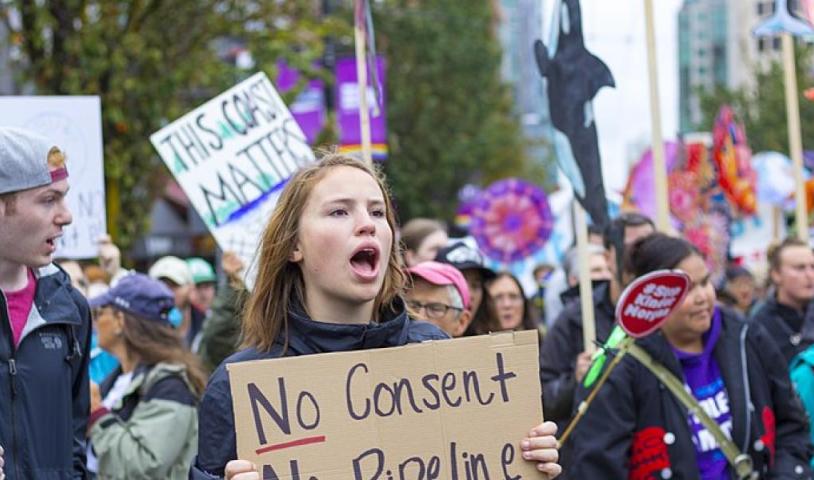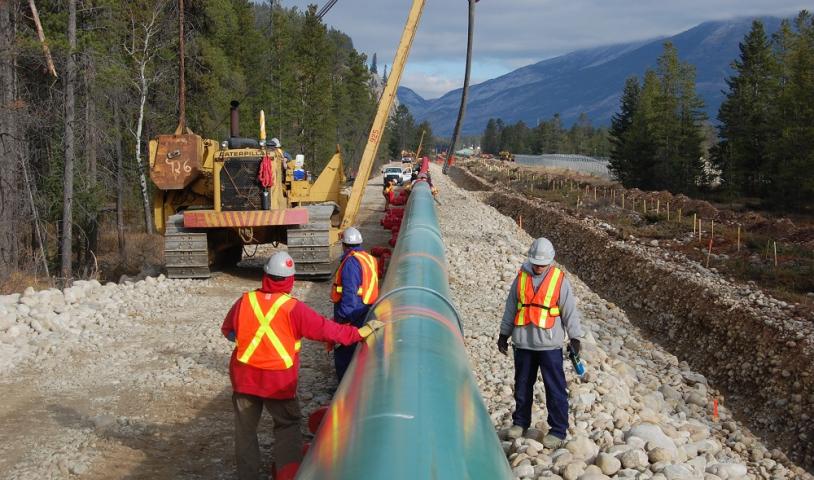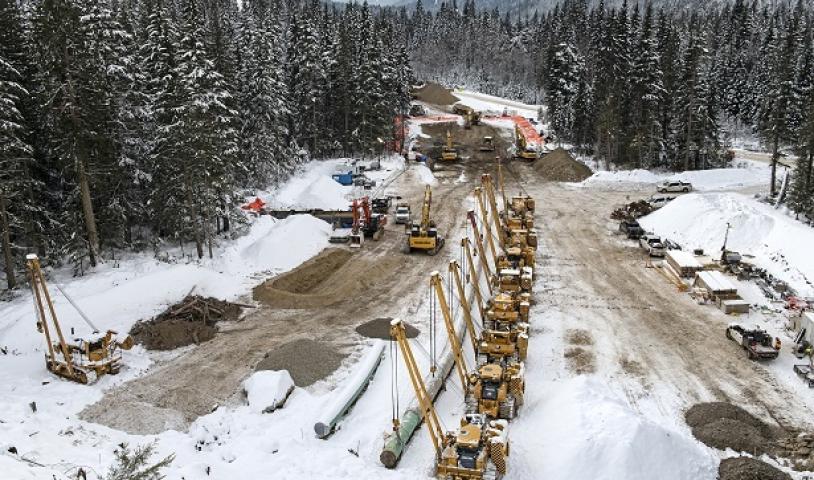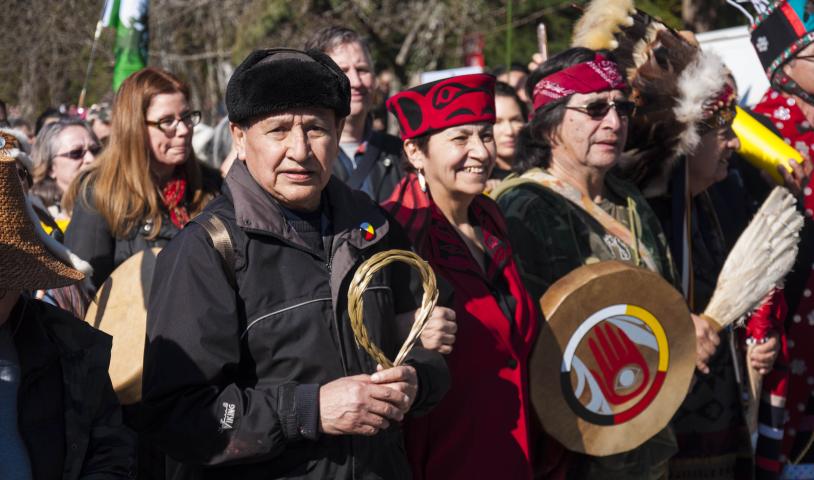Human rights and Canada's possible $15‑billion bailout package for the oil and gas industry
Monday, March 23, 2020
On March 19, The Globe and Mail reported that "the federal government is preparing a multibillion-dollar bailout package for Canada's oil and gas sector."
The Globe also reported that 65 Alberta CEOs prepared a letter urging the government to create a program similar to the U.S. Troubled Asset Relief Program (TARP) that would see the Canadian government purchase shares in oil and gas companies. It could also include the "suspension of the federal carbon tax and all income tax at every level and [the letter] urged the banks to provide no-interest loans and loan guarantees."
As Geoff Dembicki has commented in The Tyee, "the federal government should do everything possible to help oil and gas workers clobbered by the economic meltdown caused by coronavirus. But bailing out fossil fuel companies unable to survive one of the worst oil price drops in the industry's history is a terrible idea."
A large amount of public funding is already provided to this sector.
"According to a new International Monetary Fund (IMF) report, Canada subsidized the fossil fuel industry to the tune of almost $60 billion in 2015 -- approximately $1,650 per Canadian," The Narwhal has reported.
Social media reports -- from the Unist'ot'en camp and Secwepemc land defender Kanahus Manuel -- indicate that construction on the Coastal GasLink fracked gas pipeline and Trans Mountain pipeline (purchased by the Canadian government for $4.5 billion in 2018) have continued during this pandemic.
This is happening despite the United Nations Committee on the Elimination of Racial Discrimination calling for a suspension of the construction of the Trans Mountain and Coastal GasLink pipelines and the Site C hydroelectric dam until those megaprojects have received the free, prior and informed consent of Indigenous nations.
As Grand Chief Stewart Phillip and Wilderness Committee climate campaigner Peter McCartney have commented, "for generations, Canada has proudly supported human rights on the international stage at the United Nations forums while consistently failing to apply the same moral compass here at home. …We must heed the call [from the UN] and stop Trans Mountain, Coastal GasLink and Site C."
The ongoing construction of megaprojects without free, prior and informed consent also has an impact on Indigenous land defenders.
As the UN special rapporteur on the human rights to safe drinking water and sanitation Léo Heller has observed in his thematic report, "human rights defenders [around the world] advocating the rights of those affected by megaprojects have faced harassment, physical assault, bodily injuries, and even death."
Concerns about gender-based violence have also been raised in relation to these three megaprojects that should not be forgotten during this pandemic.
When reporting on the construction of the Coastal GasLink pipeline, the Terrace Standard noted that "there will be 14 [work] camps along the route, each accommodating between 500 and 800 workers at the height of construction and responsible for construction of approximately 50 to 100 km of pipeline."
The Unist'ot'en Clan of the Wet'suwet'en Nation in northern British Columbia has stated, "the culture and work conditions of 'man camps' exacerbate isolation, drug and alcohol abuse, violence, misogyny, hyper-masculinity, and racism among the men living there. These are exactly the kind of traumatic experiences, and colonial legacies, that our people are trying to recover from at the Unist'ot'en Healing Center."
The Discourse has explained that "the federal government has a tool -- called Gender-Based Analysis Plus (GBA+) -- that can be used to identify and mitigate the impacts resource extraction could have on women. GBA+ is designed to measure how gender -- in combination with other identity factors such as race, physical location, social class, religion and sexuality -- has an impact on the way we experience industries, policies and projects."
That article comments, "The problem? It rarely gets used properly."
To date, there has been no indication from the Canadian government that the GBA+ screen would be applied to the proposed $15-billion bailout package.
Government bailout packages to the oil and gas sector and subsidies (along with $481 billion in financing from Canadian banks since the signing of the Paris Agreement) run counter to the imperative of limiting a global temperature increase to 1.5 C.
UN High Commissioner for Human Rights Michelle Bachelet has commented, "We call on leaders and governments to recognise that climate change and environmental degradation severely undermine the human rights of their people."
Given the twin crises of the coronavirus pandemic (that has already seen the Canadian border closed to asylum seekers) and climate breakdown, it is all the more essential for Canada to uphold its human rights obligations.
Brent Patterson is the executive director of Peace Brigades International-Canada. This article was originally published on the PBI-Canada website. Follow PBI-Canada on Twitter @PBIcanada.
Image: William Chen/Wikimedia Commons
To view the original article published by Rabble.ca please click here.



